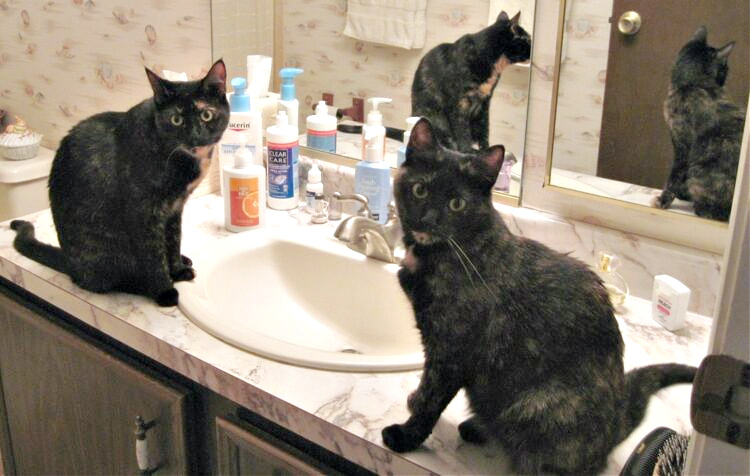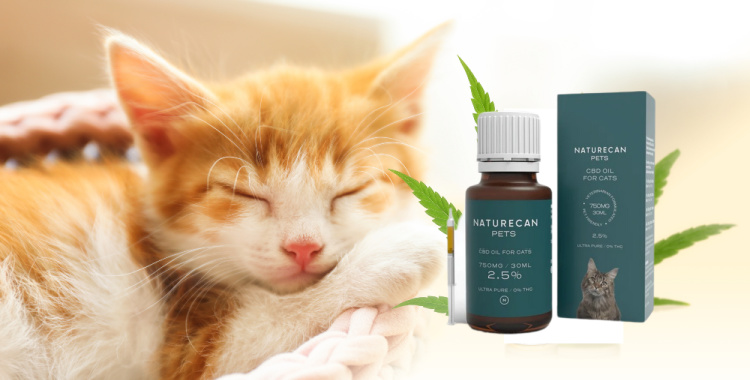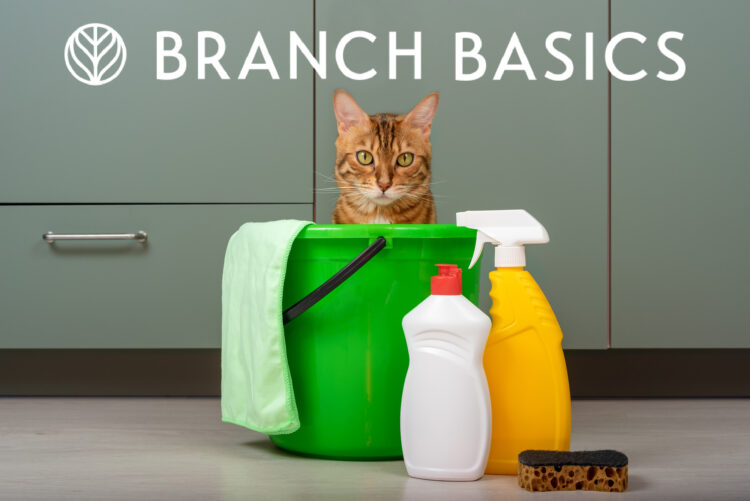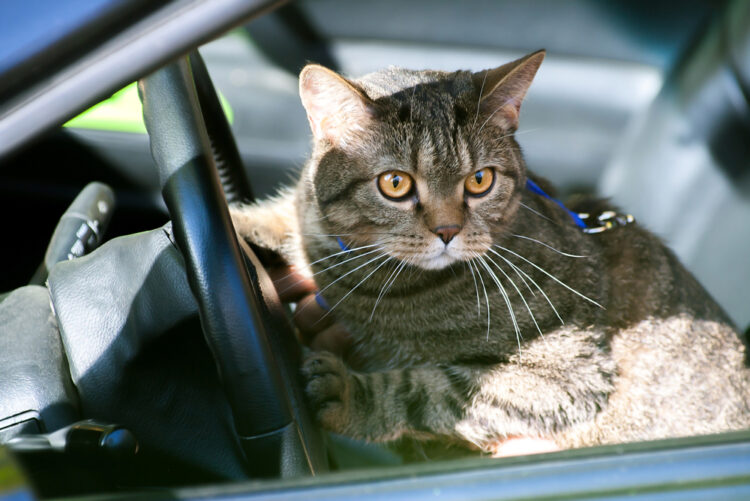
Using safe cosmetics without hazardous chemicals is not just better for you, it’s also better for your cats. Not only does your skin come in contact with those products, but so do your cat’s fur, paws, and mouth – and some of the chemicals used in conventional cosmetics can be harmful to both humans and cats.
Why you should care about the ingredients in your cosmetics
The skin is our largest organ, and it easily absorbs whatever is put on it. According to the Environmental Working Group’s (EWG) Skin Deep® website, “every day, the average woman uses about a dozen products containing more than 150 different ingredients. Many cosmetic chemicals are designed to penetrate the skin completely, and they do.”
Among these hazardous ingredients are phthalates, a common fragrance component; parabens, which are preservatives, and fragrance components like musk xylene. A growing body of evidence links some of these ingredients to cancer.
Personal care products are largely unregulated. According to EWG, “it has been more than 80 years since Congress last updated the federal law designed to ensure that personal care products are safe. The Food and Drug Administration does not even require the basic safety testing of ingredients in personal care products before they are used.”
The European Union Cosmetics Directive, established in 1976 and revised and updated multiple times since, bans the use of chemicals that are known or strongly suspected to cause cancer, mutations and birth defects. In 2004, the directive was amended to require all companies selling cosmetics in the EU to remove these chemicals from their products. Many US companies sell their products on the European market and have been required to reformulate their products. However, just because a company sells its products in Europe does not mean that the same products you purchase here in the US meet EU standards.
How your cosmetics can affect your cat’s health
While actually ingesting cosmetics is probably not as much of a problem with cats as it may be with dogs, you cat still comes in contact with these hazardous chemicals simply by coming in contact with your skin. And of course, cats will groom off anything that comes in contact with their fur, especially if it’s a substance that doesn’t really belong there. Some cats enjoy grooming their humans (I’m looking at you, Allegra!) and are ingesting residual cosmetics that way.
It doesn’t take large quantities of these substances to harm your cat. For example, even a small amount of hand sanitizer can be irritating to a cat’s intestinal tract, so always let your hands dry fully before petting your cat. Some topical creams, especially medicated ones, can even be fatal to cats.
How to choose safe cosmetics
Read your labels. Just because something is labeled “natural” and has pretty designs of wholesome ingredients on the label does not necessarily mean that it is chemical-free. The EWG Skin Deep® website is a fantastic resource for finding safe products. Simply plug your personal care product into the search bar and you’ll get a detailed breakdown of everything that’s in it and whether it’s considered safe or not.
Another consideration that is important to me when choosing cosmetics and personal care products is that they are not tested on animals. Look for the Leaping Bunny logo – it provides the best assurance that the products you use are cruelty-free. Once again, Europe is way ahead of the US: in 2013, the European Union banned the import and sale of cosmetics containing ingredients tested on animals.
I switched to mostly chemical-free cosmetics decads ago, and it’s a good thing I did: Allegra likes to lick me after I put on body lotion. And while I don’t let her do it for very long, because I’m not convinced that too much of even the most “natural” lotion is good for her, at least I don’t have to worry about her ingesting harmful chemicals while I let her have a little fun.
It’s probably next to impossible to avoid all chemicals in the products we use in our homes and around our cats, but an informed and conscious choice goes a long way toward healthier cats and healthier humans.








Thanks for another great post! I’m fragrance-sensitive myself, and I’m acutely aware that our cats’ sense of smell is far more sensitive than mine. I try to avoid anything that smells strong to me, hoping that most if not all of our choices are also easy on our cats’ sensitive systems.
Thank you for bringing this topic to light, Ingrid!
Great information!!
When we know better, we do better.
I’ve been following Cruelty Free Kitty for quite some time. How companies answer the ‘Five Questions’ have been an excellent criteria for the products I use… and those I steer clear of.
https://www.crueltyfreekitty.com/list-of-cruelty-free-brands/
Thank you for sharing this resource, Amy!
You’re Welcome, Ingrid!! ♀️
I always try to remember to wash my hands with a good soap before touching my pets, brushing their teeth, etc. You just never know these days with all of the chemicals in everything if it will cause any allergic reactions.
Wow. I was not aware of this information. I’m going to the EWG Skin Deep website and seeing which of my products are safe to use. Those that aren’t are getting thrown out and replaced by safe products. I hope many people do this, because every time we make a purchase, we vote with our dollars, and if enough people refuse to use harmful products, it will force manufacturers to clean up their acts and sell products that do not harm animals, the environment, or ourselves.
I recently switched out my lotion for tallow lotion – yep it’s made out of beef fat! It is the cleanest lotion I’ve ever used and I’m thankful to have peace of mind as my cats like to groom me sometimes also, knowing that they won’t be harmed.
Would you mind sharing the brand of that lotion, Kristyn?
Of course, the brand is vellum street, they use vanilla scent from the actual vanilla bean so there is no trace of alcohol in their lotion which also gives me peace of mind! Here is a link: https://vellumstsoapcompany.com/collections/fat-marshmallow-1/products/fat-marshmallow
This is not what I wanted to see. My body lotion and face powder are high hazard. 🙁 Miss Kiki likes to lick my face and hands. But if I have makeup on, I don’t let her lick my face.
Hi Ingrid I read all the labels for I have too watch out for aspartame for I can’t have that. I look at everything including cosmetics, cleaning products too make sure they are not tested on animals for I can’t see testing on animals first off animals don’t smoke, where cosmetics use deodorant also too put animals through that kind of torture. I make my own cleaning products. I pray for all the animals.